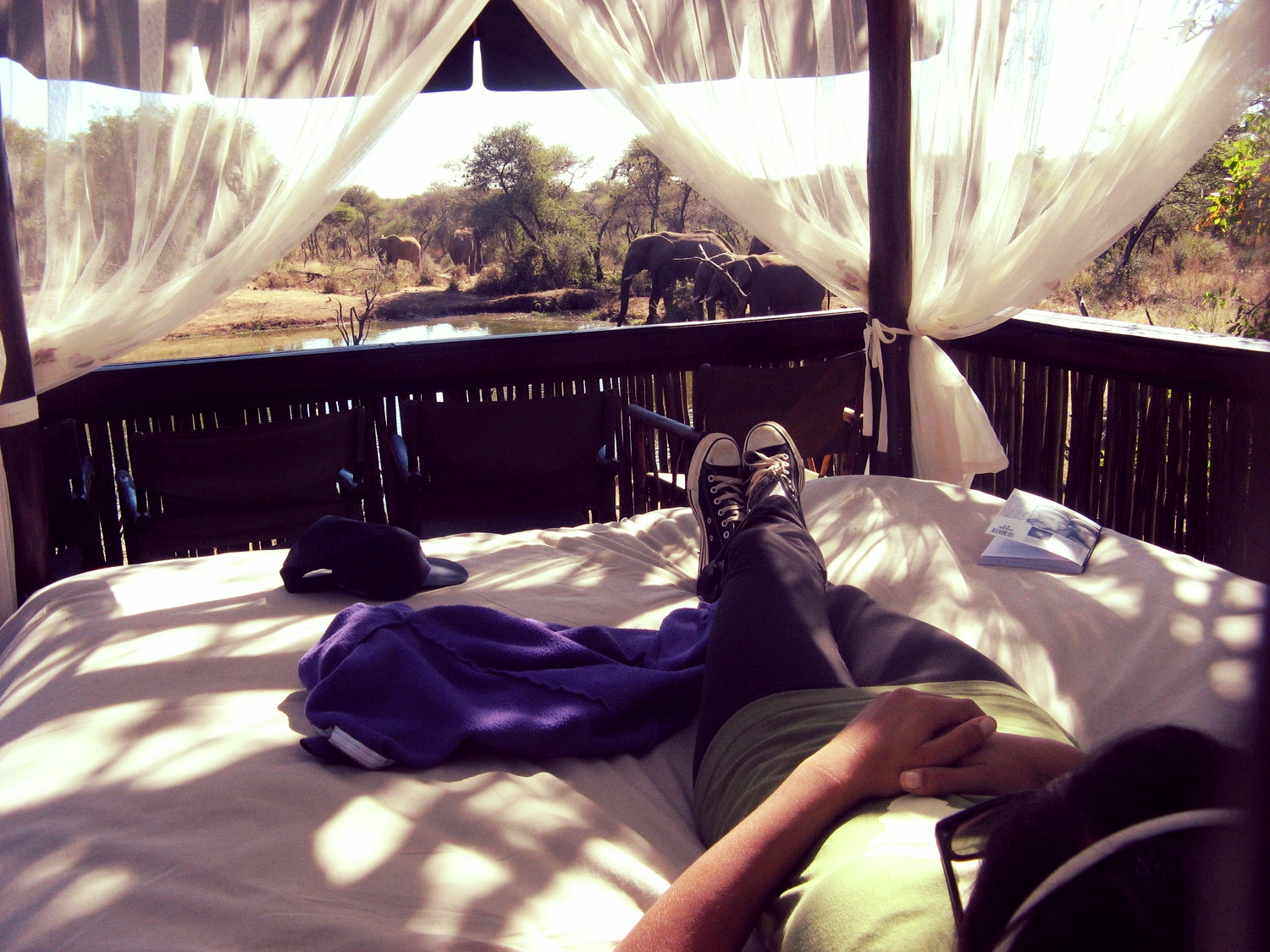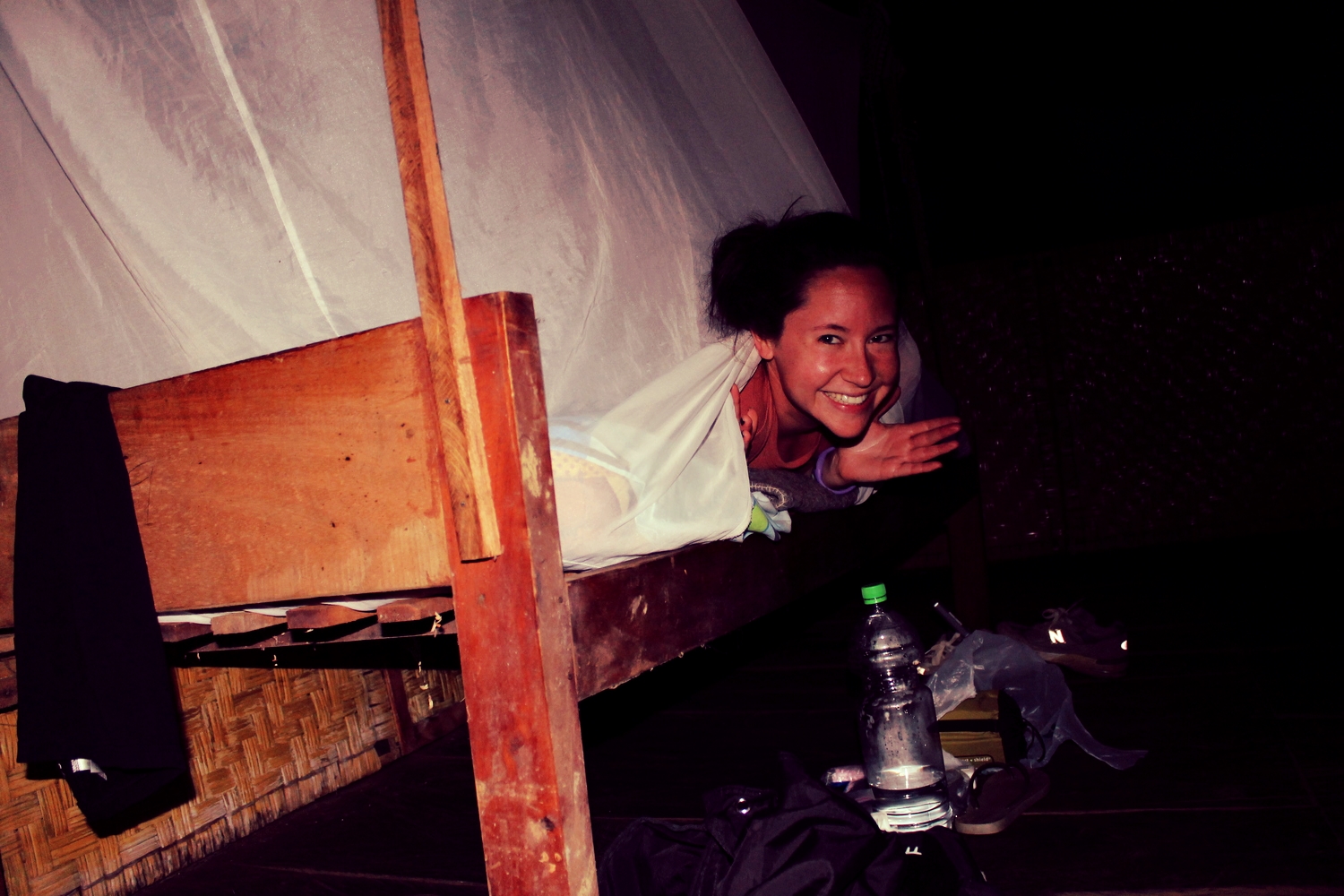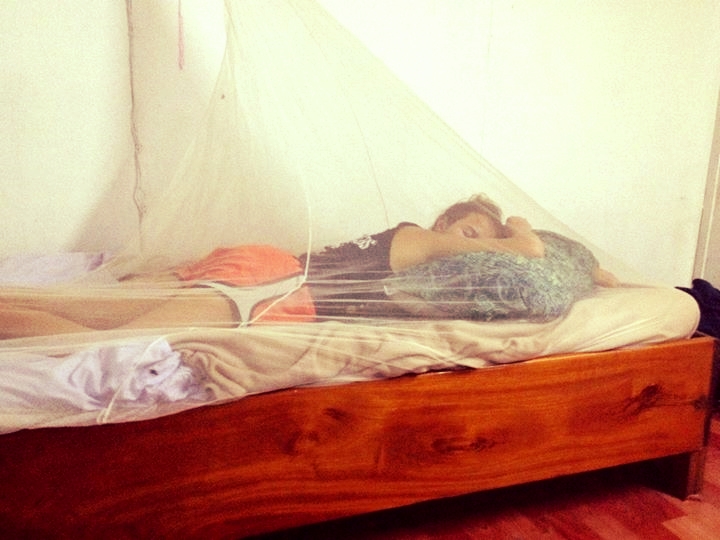Medication.
Unless you're in a super high risk area (parts of Africa), meds can be a lose/lose situation. They're expensive, a hassle and more likely to twist your dreams into nightmares and give you a constant upset stomach than to actually prevent Malaria. Contrary to popular belief, those pills you're popping just slightly decrease your odds of contracting the disease if a mozzie infiltrates your defenses.
That said, most people feel more secure wrapped in an antibiotic safety net. Do what makes you comfortable.
“Before you travel, check the availability of your malaria prescription over the counter at your destination. In places like Bolivia, India & Guatemala you can get your Western meds for a fraction of the price once you arrive.”
The Bug Suit.
If we’re talking serious security, lay the groundwork for your bug defenses by getting your paws on repellant clothing spray. This secret weapon lasts up to 20 washes and works best when you give a designated “bug suit” (a long sleeve shirt, pants, socks, tent, etc.) a liberal spray before departing for your trip. By the time dusk rolls around you’ll be sitting pretty in your suit while your less savvy neighbors donate blood.
Still worried? Go safari chic and make it a white suit. Though mosquitos are pretty equal opportunity, locals will often tell you that bugs avoid people dressed in white or light-colored clothing. Jury’s still out on whether these “locals” have just found a clever way to hawk white clothing in the jungle.
Supplements.
Hardcore travelers (or the medication averse) swear that swallowing a few cloves of garlic a day will keep the nasties away. Garlic capsules are also available, but there’s no real evidence to back this theory – although it will probably deter any unwanted advances from romantic prospects.
Bug Spray, Stick & Wipes.
Your average bug spray will do the job in less troublesome locales, but when the going gets buggy it won’t do a thing. If you’re in a low risk area and are traveling with a backpack pick up the individual wipes (the aerosol cans can’t go in a carry-on) or the handy stick applicators. The stick won’t spill and is less of a pain to put on. Focus on wrists, ankles and other exposed areas.
If you’re going anywhere with a real mosquito problem, skip the drugstore stuff and go straight for the 100% Deet concentrate. We like Ben’s, and it comes in a bottle small enough for carry on.
“As a last resort, get yourself an air-conditioned room if you find yourself in a high-risk area without a net. The purveyors of establishments with AC tend to be more stringent about keeping windows/doors sealed (and the buggies out) leaving you with a better option than becoming a walking blood donation.”
Mosquito Net.
If you’re staying in hostels or guesthouses where mozzies are a big problem, your bed will probably come with a net although it’s not a bad idea to have duct tape on hand to repair any tears. The alternative is to carry a portable version around with you (they’re pretty small) but the odds are you’ll get lazy and stop using it after awhile unless you’re bunking outdoors or in a hammock.
Strategically Placed Fans.
Nope, we haven't run out of ideas, this is a real thing. A strong overhead or portable fan can make it an uphill battle for buggers to bite when positioned correctly. A good think to ask for when checking in or evaluating sleeping quarters.





